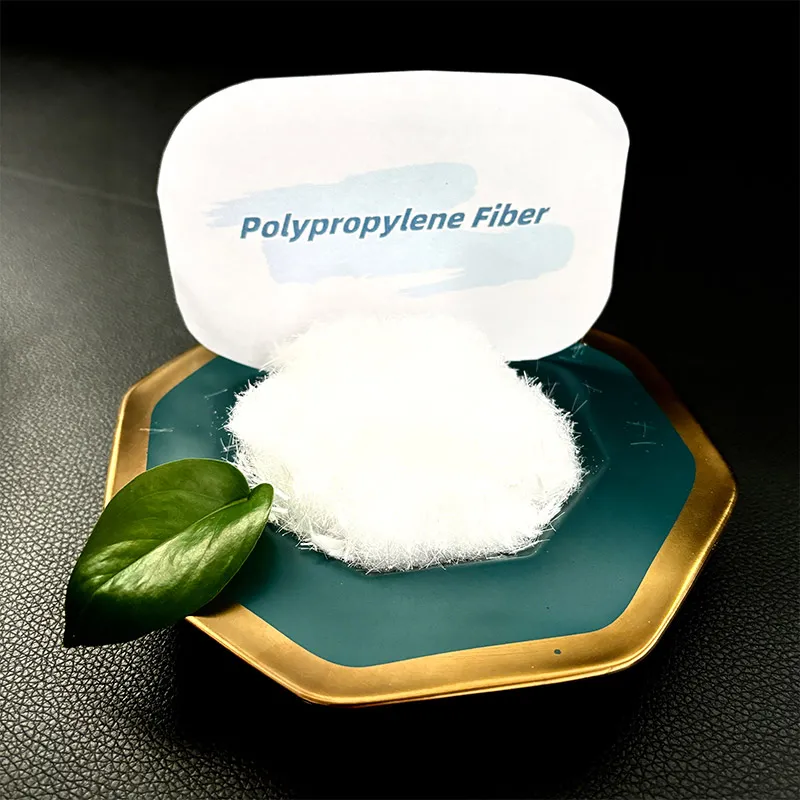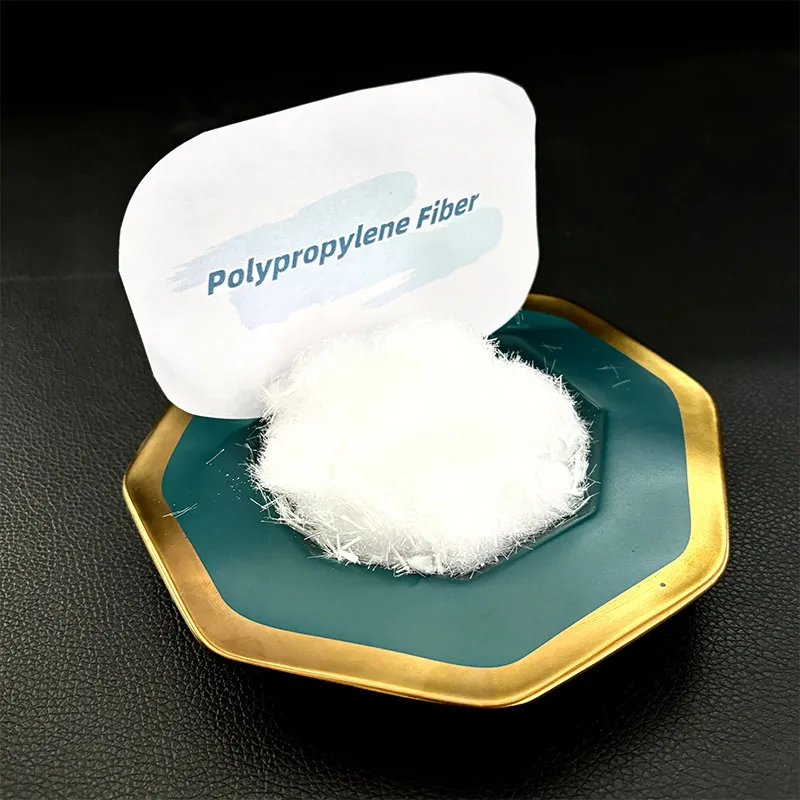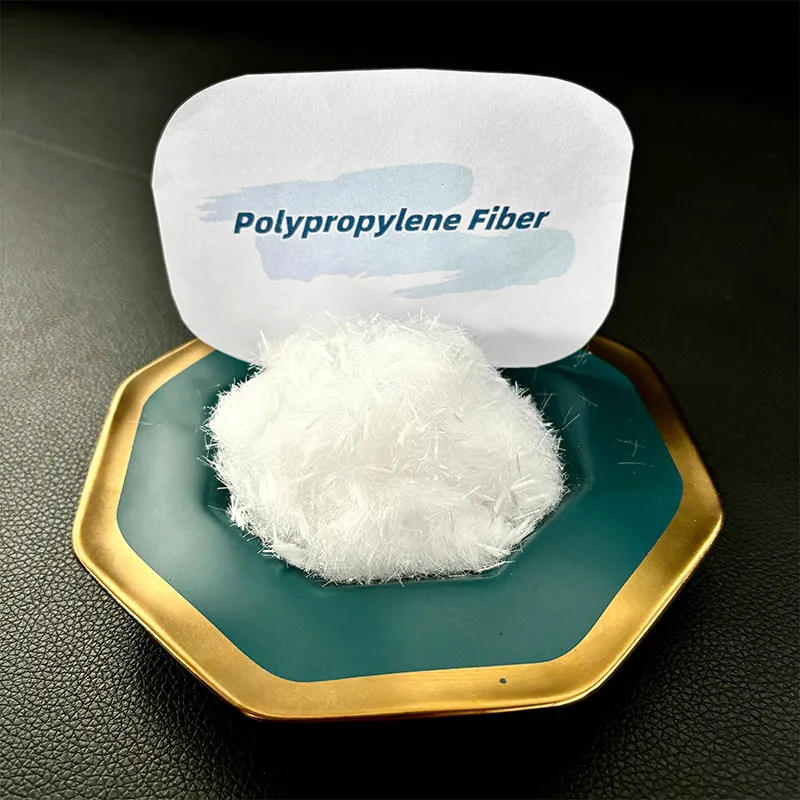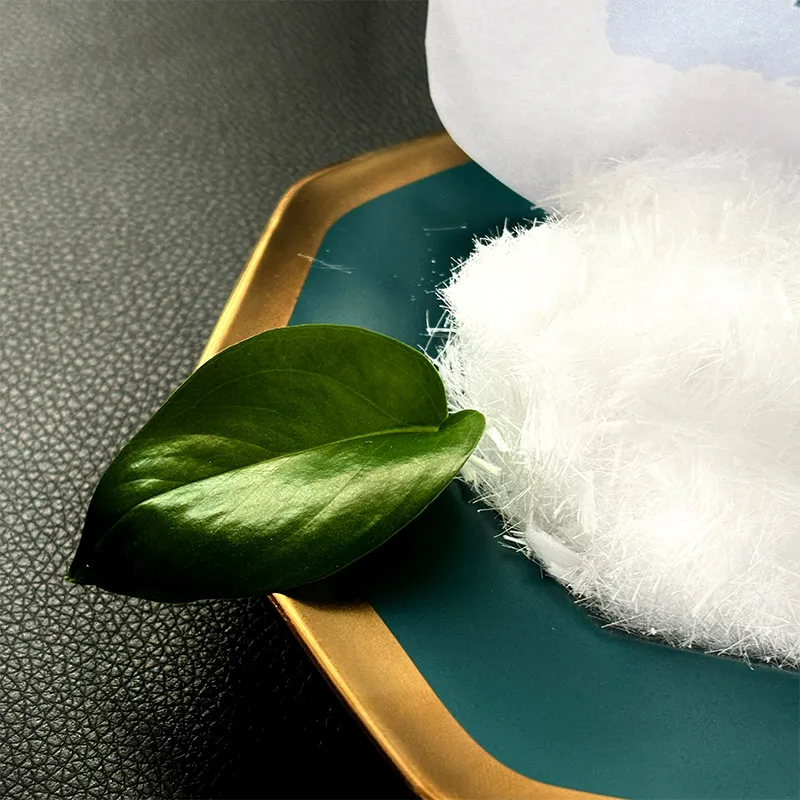
-

Add: HeBei ShengShi HongBang Cellulose Technology CO.,LTD.
-

Email
13180486930@163.com -

CONTACT US
+86 13180486930

Premium Polypropylene Fiber for Concrete Reinforcement
Welcome to the definitive resource on polypropylene fiber, the high-performance additive revolutionizing the construction industry. This guide explores everything from market trends and technical specifications to advanced applications and manufacturing excellence. Discover how pp fiber enhances concrete durability, controls cracking, and provides a cost-effective alternative to traditional reinforcement methods.
Industry Trends: The Rise of Microfiber Synthetic Reinforcement
The global construction industry is undergoing a significant transformation, driven by a demand for more durable, sustainable, and efficient building materials. Within this evolution, microfiber synthetic materials, particularly polypropylene fiber, have emerged as a critical component. The market for synthetic concrete fibers is projected to grow at a compound annual growth rate (CAGR) of over 7.5% from 2023 to 2030, according to industry analysis. This growth is fueled by several factors:
- Increased Infrastructure Spending: Governments worldwide are investing heavily in infrastructure projects like roads, bridges, and tunnels, all of which benefit from the enhanced properties of pp fiber concrete.
- Focus on Durability and Lifespan: Asset owners are demanding longer service lives from their concrete structures. Polypropylene fiber significantly improves resistance to cracking, impact, and abrasion, extending the structure's lifespan and reducing maintenance costs.
- Technological Advancements: Innovations in polymer science and manufacturing have led to the development of highly engineered fibers with superior performance and dispersion characteristics, making them more effective and easier to use than ever before.
- Sustainability and Cost-Effectiveness: As a lightweight additive, polypropylene fibre reduces the overall carbon footprint compared to transporting heavy steel mesh. It also offers significant cost savings by reducing labor time and material waste.

Unveiling the Science: What Exactly Is Polypropylene Fiber?
Polypropylene fiber (PP Fiber) is a synthetic microfiber meticulously engineered from 100% virgin polypropylene resin. It is specifically designed to be mixed into concrete or mortar to act as a three-dimensional secondary reinforcement system. Unlike traditional two-dimensional steel mesh, which only reinforces a single plane, millions of these individual fibers are distributed uniformly throughout the concrete matrix. This multi-directional reinforcement provides highly effective control of plastic shrinkage cracking—the small, troublesome cracks that appear on the surface of concrete as it begins to dry.
The fundamental principle behind its effectiveness lies in its material properties. Polypropylene is a thermoplastic polymer that is chemically inert, meaning it is not affected by the highly alkaline environment of cement. It also has a low modulus of elasticity and high elongation, allowing it to bridge micro-cracks as they form, effectively holding the concrete together and preventing these cracks from propagating into larger, more serious structural issues.
Core Technical Specifications
Understanding the technical parameters of polypropylene fiber is crucial for specifying the right product for your project. Our fibers are manufactured to meet and exceed the most stringent industry standards, including ASTM C1116/C1116M - Standard Specification for Fiber-Reinforced Concrete.
| Parameter | Specification | Significance & Benefit |
|---|---|---|
| Material | 100% Virgin Polypropylene | Ensures consistent quality, high performance, and excellent chemical resistance. No recycled materials are used. |
| Fiber Type | Monofilament / Fibrillated | Monofilament is for shrinkage crack control. Fibrillated offers a network for enhanced impact resistance. |
| Tensile Strength | > 450 MPa | High tensile strength allows the fibers to effectively bridge micro-cracks under stress, preventing propagation. |
| Standard Lengths | 6mm, 12mm, 19mm (Customizable) | Different lengths are optimized for various applications, from mortar and stucco (6mm) to slabs and shotcrete (19mm). |
| Diameter | 20-40 μm | The fine diameter ensures a high fiber count per kilogram, leading to better distribution and crack control. |
| Melting Point | Approx. 165°C (329°F) | Stable during the concrete mixing and curing process. Not affected by the heat of hydration. |
| Alkali Resistance | Excellent (Chemically Inert) | Will not degrade or corrode in the high-pH environment of concrete, guaranteeing long-term performance. |
| Dispersion | Excellent, uniform distribution | Special surface treatments ensure fibers do not ball up and distribute evenly with minimal mixing effort. |
Our Advanced Manufacturing Process: From Polymer to Performance Fiber
The quality of a polypropylene fiber is a direct result of the precision and control of its manufacturing process. At our ISO 9001:2015 certified facility, we employ a state-of-the-art production line to transform raw polypropylene pellets into high-performance reinforcement fibers.
1. Raw Material
100% Virgin PP Pellets2. Extrusion
Melted & formed into continuous filaments3. Drawing & Stretching
Aligns molecules for high tensile strength4. Precision Cutting
CNC-controlled for exact lengths5. Quality Control
Testing for strength, length, dispersion6. Packaging
Water-soluble bags for easy dosing
Process Highlights:
- Material Purity: We exclusively use 100% virgin polypropylene, which guarantees that there are no impurities that could compromise the fiber's chemical resistance or physical properties.
- Controlled Extrusion and Drawing: This crucial step is where the fiber's strength is born. By precisely controlling the temperature and stretching ratio, we orient the polymer chains to achieve a tensile strength far exceeding industry norms.
- CNC Precision Cutting: Inconsistent fiber length can lead to poor performance. Our computer-numerically controlled (CNC) cutting systems ensure that every fiber is within a tight tolerance, providing predictable and reliable results in every batch.
- Rigorous Quality Testing: Every production lot undergoes a battery of tests based on ISO and ASTM standards. We test for tensile strength, length distribution, and dispersion in a real cementitious slurry to ensure our product performs flawlessly on your job site.
Why Choose Polypropylene Fiber? Unmatched Advantages
The integration of pp fiber into concrete mixes delivers a host of benefits that directly impact project quality, longevity, and cost. It's not just about stopping cracks; it's about building better, more resilient structures.
Performance Boost with PP Fiber
*Comparative performance of pp fiber concrete vs. plain concrete. Results may vary based on mix design and dosage.
Fiber Application Distribution
■ 40% Slabs & Flooring
■ 25% Shotcrete & Tunnels
■ 20% Precast Elements
■ 15% Mortars & Stucco

Versatile Applications: Where Polypropylene Fibre Excels
The unique properties of polypropylene fibre make it an ideal additive for a wide range of construction applications. Its versatility allows engineers and contractors to enhance performance across different types of projects.
Industrial Slabs & Warehouse Flooring
In large concrete pours for flooring, plastic shrinkage cracking is a primary concern. PP fiber concrete provides superior, three-dimensional reinforcement that minimizes these cracks, resulting in a more durable and aesthetically pleasing surface that can withstand heavy traffic from forklifts and machinery.
Shotcrete & Tunnel Linings
For sprayed concrete applications, microfiber synthetic fibers significantly improve the cohesion of the mix. This reduces rebound (material that falls off the surface during application), saving material costs. It also increases the toughness and shatter resistance of the final lining, which is critical for safety in tunnels and on slopes.
Precast Concrete Elements
In the production of precast products like pipes, septic tanks, and architectural panels, polypropylene fiber helps reduce breakages during demolding and transportation. It improves the green strength (the strength of the concrete at a very early age) and enhances the surface finish.
Pavements, Driveways & Sidewalks
Exterior concrete is exposed to harsh weather cycles of freezing and thawing. PP fiber enhances the fatigue resistance and durability of the concrete, helping it resist the stresses of temperature changes and de-icing salts, leading to a longer service life with fewer repairs.

Selecting the Right Supplier: A Comparative Analysis
Not all polypropylene fiber is created equal. Choosing a reputable manufacturer with a commitment to quality is paramount to achieving the desired results. Here’s how we stand out:
| Feature | Our Premium PP Fiber | Generic/Standard Competitors |
|---|---|---|
| Material Source | ✅ 100% Virgin Polypropylene Resin | Often use recycled or blended polymers |
| Certifications | ✅ ISO 9001:2015, CE Mark, ASTM C1116 Compliance | Limited or no verifiable certifications |
| Tensile Strength | ✅ Consistently > 450 MPa | Variable, often lower (300-400 MPa) |
| Customization | ✅ Custom lengths, specialized coatings, project-specific packaging | Standard sizes and packaging only |
| Technical Support | ✅ Dedicated engineering support, dosage calculation, on-site guidance | Basic sales support, limited technical expertise |
| Dispersion Technology | ✅ Advanced surface coating for rapid, clump-free mixing | Untreated fibers, risk of balling and uneven distribution |
Tailored to Your Project: Custom Solutions
We understand that every construction project has unique requirements. That's why we offer comprehensive customization for our pp fiber products. Our technical team works directly with you to develop a tailored solution. This includes:
- Custom Fiber Lengths: From ultra-fine 3mm fibers for plaster to robust 24mm fibers for high-impact applications.
- Dosage Optimization: We provide expert recommendations on the optimal dosage (typically from 0.6 kg/m³ to 1.8 kg/m³) based on your specific mix design and performance goals.
- Specialized Packaging: We offer our fibers in pre-weighed, water-soluble bags that can be tossed directly into the concrete mixer, saving time and ensuring accurate dosing on site.
Proven Performance: Our PP Fiber in Action (Case Studies)
Theoretical benefits are one thing; real-world results are what truly matters. Our polypropylene fiber has been trusted in thousands of projects globally, delivering tangible improvements in performance and durability.
Case Study 1: Large-Scale Logistics Center Flooring
- Project: 50,000 square meter warehouse floor for a major logistics company.
- Challenge: The client needed to minimize plastic shrinkage cracks over a vast area and ensure the floor could withstand constant, heavy forklift traffic and potential impacts. Replacing steel mesh was a key goal to accelerate the construction schedule.
- Solution: We recommended our 12mm monofilament polypropylene fiber at a dosage of 0.9 kg/m³. Our technical team provided on-site support to ensure proper integration into the ready-mix trucks.
- Outcome: The project was completed ahead of schedule due to the elimination of steel mesh installation. A post-cure inspection revealed an 88% reduction in visible micro-cracks compared to a non-fiber control section. The client reported superior surface durability and reduced maintenance needs after one year of full operation.
Case Study 2: Shotcrete for a Railway Tunnel Rehabilitation
- Project: Relining of a 2km aging railway tunnel.
- Challenge: The existing concrete liner was deteriorating. The rehabilitation required a shotcrete solution with high cohesion, low rebound, and excellent long-term toughness to resist vibrations from passing trains.
- Solution: Our fibrillated 19mm pp fiber concrete additive was specified. The fibrillated network structure is ideal for mechanically locking into the shotcrete matrix, enhancing toughness.
- Outcome: The contractor reported a rebound reduction of approximately 15%, leading to significant material cost savings. Core samples taken from the new liner showed a 65% increase in post-crack energy absorption (toughness) as per ASTM C1550 tests, ensuring the structural integrity and safety of the tunnel for decades to come.

Our Commitment to Quality and Trust (E-E-A-T)
Trust is earned through expertise, authority, and consistent performance. We are committed to upholding the highest standards of the Google E-E-A-T (Experience, Expertise, Authoritativeness, Trustworthiness) framework.
Authoritativeness & Certifications
Our commitment to quality is validated by internationally recognized certifications. Our manufacturing facilities are ISO 9001:2015 certified for quality management. Our products carry the CE mark, indicating conformity with health, safety, and environmental protection standards for products sold within the European Economic Area. Furthermore, all our fibers are designed and tested to comply with ASTM C1116, the benchmark standard for fiber-reinforced concrete.
Experience & Customer Feedback
With over 15 years in the industry, we have supplied polypropylene fibre to countless projects on every continent. Our experience is your advantage.
"The technical support was outstanding. Their recommendation for fiber type and dosage was spot on for our precast panel project. We saw a noticeable reduction in edge chipping and hairline cracks. A truly professional partner."
- John Carter, Production Manager, Precast Solutions Ltd.Trustworthiness: Delivery, Warranty, and Support
- Delivery & Lead Time: We maintain a robust inventory and have streamlined logistics to ensure fast and reliable delivery. Standard orders typically ship within 7-14 business days.
- Quality Guarantee: We stand behind our product. Every batch of polypropylene fiber comes with a Certificate of Analysis (COA) and is guaranteed to meet the specifications published on our technical data sheets.
- Unwavering Customer Support: Our support extends beyond the sale. Our team of material scientists and civil engineers is available to answer your technical questions, assist with mix design, and provide guidance to ensure your project's success.
Frequently Asked Questions about Polypropylene Fiber
The typical dosage for controlling plastic shrinkage cracks in standard concrete (e.g., slabs, driveways) is 0.9 kg per cubic meter (or 1.5 lbs per cubic yard) of concrete. However, for applications requiring higher performance, such as increased impact resistance or for shotcrete, the dosage can be increased up to 3-5 kg/m³. We always recommend consulting our technical data sheet or contacting our support team for project-specific recommendations.
At standard dosages, our high-quality polypropylene fiber has a negligible effect on slump and workability. The fibers are designed to disperse easily without demanding more water. You might notice the mix appears slightly stiffer, but it remains easy to place and finish. It is not recommended to add more water to the mix; if necessary, a superplasticizer should be used.
No. Polypropylene fiber (a microfiber) is considered secondary reinforcement. Its primary role is to control cracking at a micro level, specifically plastic shrinkage and settlement cracks, and to enhance toughness. It is not a replacement for primary structural reinforcement like rebar or steel mesh, which are designed to carry tensile loads and are specified by a structural engineer. However, in some applications like slabs-on-ground, macro synthetic fibers can replace steel mesh for temperature and shrinkage control.
Monofilament fibers are individual, single strands. They are excellent for controlling early-age plastic shrinkage cracking and achieving a smooth surface finish. Fibrillated fibers are manufactured as a film that is then slit to create a net-like or web-like structure. When they mix in the concrete, this web opens up, providing a mechanical anchor that is particularly effective at increasing impact and abrasion resistance. The choice depends on the primary performance goal.
Adding the fiber is simple. The best method is to introduce the water-soluble bags into the central mixer or ready-mix truck drum along with the aggregates before adding water and cement. Mixing for at least 5 minutes at mixing speed (approximately 70-100 revolutions) will ensure uniform distribution. The fibers can also be added to a freshly mixed batch of concrete, provided it is mixed for an additional 5 minutes to disperse them properly.
Our polypropylene fiber has an indefinite shelf life when stored in its original, unopened packaging in a dry, covered environment. It is important to protect it from direct sunlight and moisture to maintain the integrity of the water-soluble packaging.
Absolutely. All our polypropylene fiber products are manufactured to meet or exceed the requirements of ASTM C1116 / C1116M, "Standard Specification for Fiber-Reinforced Concrete." This ensures that our fibers are classified as Type III Synthetic Fiber-Reinforced Concrete and are suitable for the applications outlined in the standard. We provide certificates of compliance upon request.
Ready to Build Stronger, More Durable Concrete Structures?
Elevate your next project with the proven performance of our premium polypropylene fiber. Contact our experts today for a personalized quote, technical data sheets, or a free consultation.
Get Your Custom Quote NowFurther Reading & Industry Citations
For those interested in a deeper technical dive into the science and application of synthetic fibers in concrete, we recommend the following authoritative resources:
- ACI Committee 544, "State-of-the-Art Report on Fiber Reinforced Concrete (ACI 544.1R-96)." American Concrete Institute, 1996. This comprehensive report provides a foundational understanding of all types of fiber reinforcement, including polypropylene. While an older document, its principles remain fundamental. It can be found at www.concrete.org.
- Bentur, A., and Mindess, S. "Fibre Reinforced Cementitious Composites." CRC Press, 2006. A seminal textbook in the field, offering detailed analysis of the mechanics and material properties of fiber-reinforced composites. Available on platforms like ScienceDirect.
- Industry Discussion: "Polypropylene Fibers in Slab-On-Grade - Replacement for WWM?". Eng-Tips Forums, Civil/Environmental Engineering section. These forums provide valuable real-world insights from practicing engineers on the practical application and performance of pp fiber concrete. A relevant thread can be explored at www.eng-tips.com.
-
Ethyl Cellulose Powder as a Pharmaceutical BinderNewsJul.10,2025
-
Blending Fibre Natural and Synthetic for PerformanceNewsJul.10,2025
-
Starch Ether For Construction: The Advanced Mortar Additive RevolutionNewsJul.10,2025
-
MHEC Cellulose in Cement-Based Renders and PlastersNewsJul.10,2025
-
Micronized Rubber Powder Dispersion TechniquesNewsJul.10,2025
-
Impact of Cream of Tartar Plaster Retarder on Final StrengthNewsJul.10,2025
-
Rubber Powder Durability in ConstructionNewsJun.26,2025











